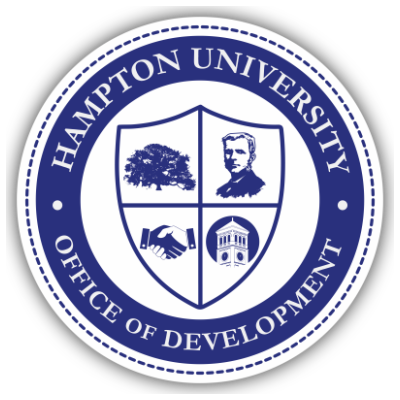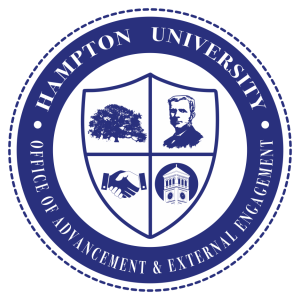PLANNED GIVING
Leave a Legacy
PLANNED GIVING WEBSITE
Planned Giving Form
The Office of Development at Hampton University will work with you and your financial advisors to develop a gift plan that meets your philanthropic and financial goals. In addition to leaving a legacy, gift planning can provide financial and tax benefits for you and your family. If you have included Hampton in your estate plans, please let us know. Please consider completing a confidential Hampton University Planned Giving Intent Form (PDF). Feel free to contact our staff, michael.walker@hamptonu.edu 757-727-5286 or evelyn.graham@hamptonu.edu 757-727-5356 with any questions you may have.
Please send the completed Planned Giving Form to:
Hampton University
Office of Development
200 William R. Harvey Way
Hampton, VA 23668
WAYS TO LEAVE A LEGACY
Charitable Lead Trust
A charitable lead trust is an irrevocable trust designed to reduce a beneficiary’s potential tax liability and to provide financial support to one or more charities for a period of time. After the trust term ends, the balance of the trust is paid to the beneficiary. A charitable lead trust can be a powerful tool in gift and estate planning.
Charitable Remainder Trust
A charitable remainder trust is thought to be the opposite of a charitable lead trust. It is an irrevocable trust designed to provide income to the beneficiaries for a specified period of time. After that time, the remainder is donated to a designated charity.
Gifts by Will or Revocable Living Trust
-
The most common form of deferred gift to support Hampton is a bequest contained in a person’s will or revocable (living) trust. The following language is an example of how a bequest to benefit Hampton may be worded:
I give, devise and bequeath to Hampton University, a qualified 501(c)(3) charitable organization located in Hampton, Virginia, _____ percent of my residual estate (or a specific bequest of $__________, or other personal or real property appropriately described) for (a specific college, school, program or unrestricted use), to be used in accordance with the terms of the most recent written directive I have signed with the University, and, if none exists, to be used as directed by the (e.g. President or Board of Trustees) at Hampton University.
Life Insurance As a Gift
A charitable gift of life insurance can allow you to make a more substantial gift than you imagined possible. You can name Hampton as a primary or contingent beneficiary of a life insurance policy. There are other beneficial ways to use life insurance for charitable giving.
Real Estate As A Gift
A gift of real estate may be a principal residence or vacation home, a farm, a commercial building, a subdivision lot, or unimproved land. The gift may be the entire property or a fractional interest in the property. You can claim a charitable tax deduction for the full fair market value of the real estate and avoid capital gains taxes on the appreciation. All gifts of real estate require prior approval by Hampton’s Gift Policy Committee.
Retirement Plan As A Gift
-
You can name Hampton as a primary or contingent beneficiary of a retirement plan (e.g. IRA, SEP, 401(k), 403 (b), ESOP, etc.) Your retirement account’s plan administrator can help you designate Hampton University as a primary or contingent beneficiary on the plan’s beneficiary designation form. (Please send Hampton a copy of this form.)
Securities As A Gift
Gifts of appreciated stocks, bonds, or mutual funds held for more than one year can provide special tax advantages. Closely held stock, S corporation stock, limited liability company interests, and partnership interests can sometimes be used to make a charitable gift. Any proposed gift of such assets should be reviewed with Hampton University and your tax advisors in advance.
Tangible Property As A Gift
If a gift-in-kind is related to the “charitable purpose” of the University, which is quite broad for educational institutions, you may be eligible for a deduction of the asset’s full fair market value. Examples of gifts-in-kind include laboratory equipment, art work, special collections, furnishings, machinery, computer equipment, and software. Certain gifts of tangible personal property, including art work, require approval by Hampton’s Gift Policy Committee.
PLANNED GIVING
Leave a Legacy
PLANNED GIVING WEBSITE
Planned Giving Form
The Office of Development at Hampton University will work with you and your financial advisors to develop a gift plan that meets your philanthropic and financial goals. In addition to leaving a legacy, gift planning can provide financial and tax benefits for you and your family. If you have included Hampton in your estate plans, please let us know. Please consider completing a confidential Hampton University Planned Giving Intent Form (PDF). Feel free to contact our staff, michael.walker@hamptonu.edu 757-727-5286 or evelyn.graham@hamptonu.edu 757-727-5356 with any questions you may have.
Please send the completed Planned Giving Form to:
Hampton University
Office of Development
200 William R. Harvey Way
Hampton, VA 23668
WAYS TO LEAVE A LEGACY
Gifts by Will or Revocable Living Trust
-
The most common form of deferred gift to support Hampton is a bequest contained in a person’s will or revocable (living) trust. The following language is an example of how a bequest to benefit Hampton may be worded:
I give, devise and bequeath to Hampton University, a qualified 501(c)(3) charitable organization located in Hampton, Virginia, _____ percent of my residual estate (or a specific bequest of $__________, or other personal or real property appropriately described) for (a specific college, school, program or unrestricted use), to be used in accordance with the terms of the most recent written directive I have signed with the University, and, if none exists, to be used as directed by the (e.g. President or Board of Trustees) at Hampton University.
Gifts of Retirement Plans
-
You can name Hampton as a primary or contingent beneficiary of a retirement plan (e.g. IRA, SEP, 401(k), 403 (b), ESOP, etc.) Your retirement account’s plan administrator can help you designate Hampton University as a primary or contingent beneficiary on the plan’s beneficiary designation form. (Please send Hampton a copy of this form.)
Gifts of Life Insurance
A charitable gift of life insurance can allow you to make a more substantial gift than you imagined possible. You can name Hampton as a primary or contingent beneficiary of a life insurance policy. There are other beneficial ways to use life insurance for charitable giving.
Charitable Lead Trust
A charitable lead trust is an irrevocable trust designed to reduce a beneficiary’s potential tax liability and to provide financial support to one or more charities for a period of time. After the trust term ends, the balance of the trust is paid to the beneficiary. A charitable lead trust can be a powerful tool in gift and estate planning.
Charitable Remainder Trust
A charitable remainder trust is thought to be the opposite of a charitable lead trust. It is an irrevocable trust designed to provide income to the beneficiaries for a specified period of time. After that time, the remainder is donated to a designated charity.
Gifts of Real Estate
A gift of real estate may be a principal residence or vacation home, a farm, a commercial building, a subdivision lot, or unimproved land. The gift may be the entire property or a fractional interest in the property. You can claim a charitable tax deduction for the full fair market value of the real estate and avoid capital gains taxes on the appreciation. All gifts of real estate require prior approval by Hampton’s Gift Policy Committee.
Gifts of Tangible Property
If a gift-in-kind is related to the “charitable purpose” of the University, which is quite broad for educational institutions, you may be eligible for a deduction of the asset’s full fair market value. Examples of gifts-in-kind include laboratory equipment, art work, special collections, furnishings, machinery, computer equipment, and software. Certain gifts of tangible personal property, including art work, require approval by Hampton’s Gift Policy Committee.
Gifts of Securities
Gifts of appreciated stocks, bonds, or mutual funds held for more than one year can provide special tax advantages. Closely held stock, S corporation stock, limited liability company interests, and partnership interests can sometimes be used to make a charitable gift. Any proposed gift of such assets should be reviewed with Hampton University and your tax advisors in advance.


